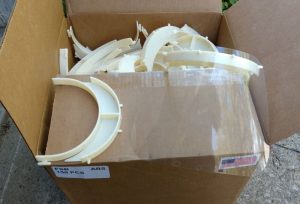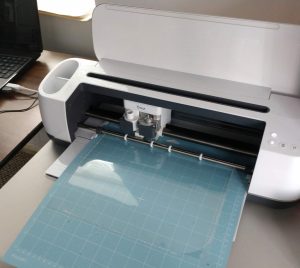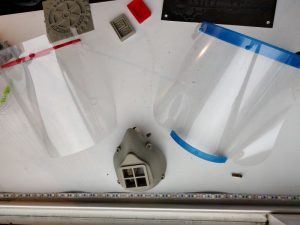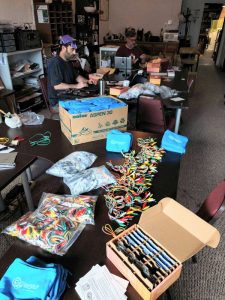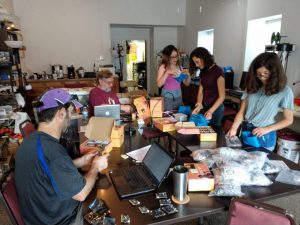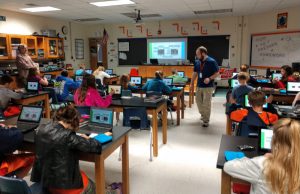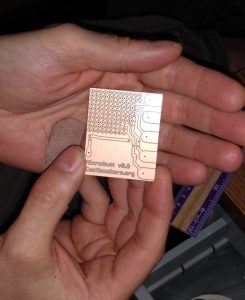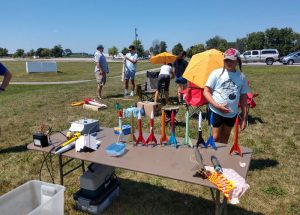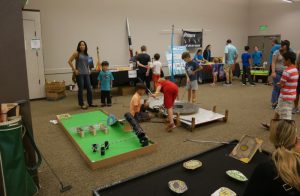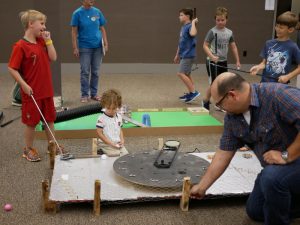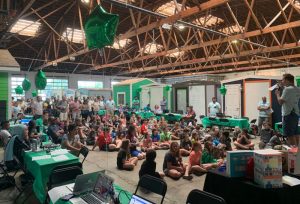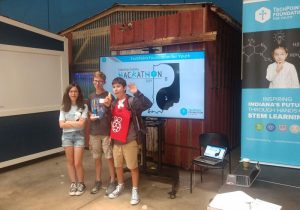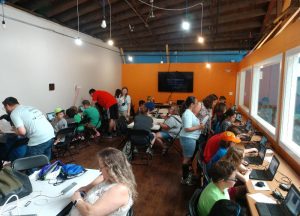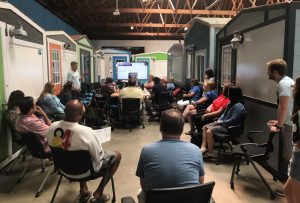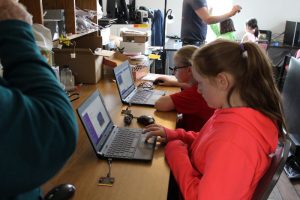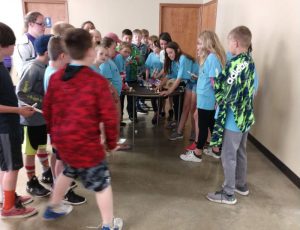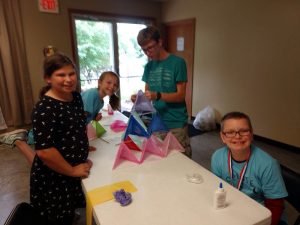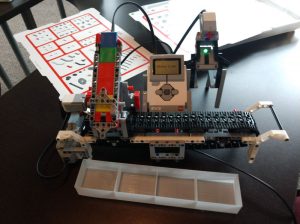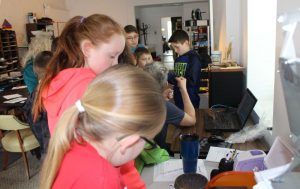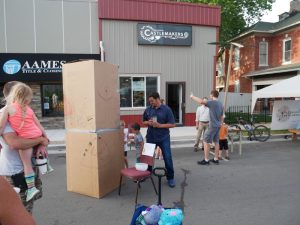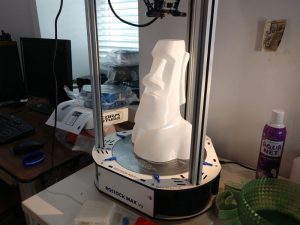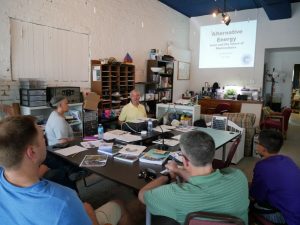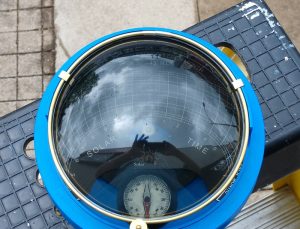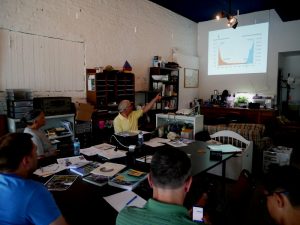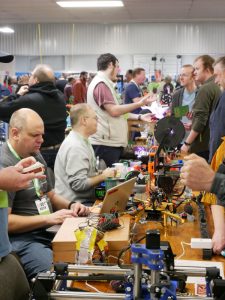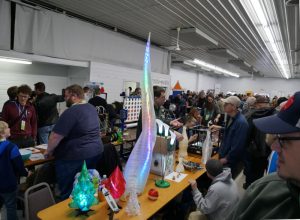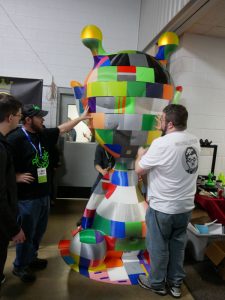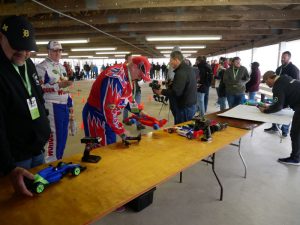Thanks to a gift from SeeMeCNC in Ligonier Indiana, we’ve been able to donate an extra 150 face shields to Putnam County Hospital in case they’re needed for a Covid-19 case surge.
Last month we started making face shields for those that needed them, but 3D printing can be a slow process. You can do some things to speed up/optimize print time, but if you need a lot of something it’s often not the way to go.
Steve Wygant at SeeMeCNC/Blackpoint Engineering, who makes 3D printers and designs plastic injection molds (among other things) recognized that problem and did something. Within hours he took an open source face shield headband design used in Europe and turned it into an injection molded piece. Then they took their in-house machines used for 3D printers to make headbands and face shields for others. They even started gave away cases of the injection molded parts to groups like Castlemakers who were making and donating face shields in their local community.
We took their headbands and then created face shields by cutting overhead transparencies and report covers to make the shield. Thin clear plastic is in short supply everywhere! Our lasercutter works well to cut overhead transparencies quickly, but the slightly thicker clear report covers us a material (PVC) that’s not safe to lasercut. For those we developed a template we could use with our Cricut Maker. I’ll add some details on our covid-maker webpage.
